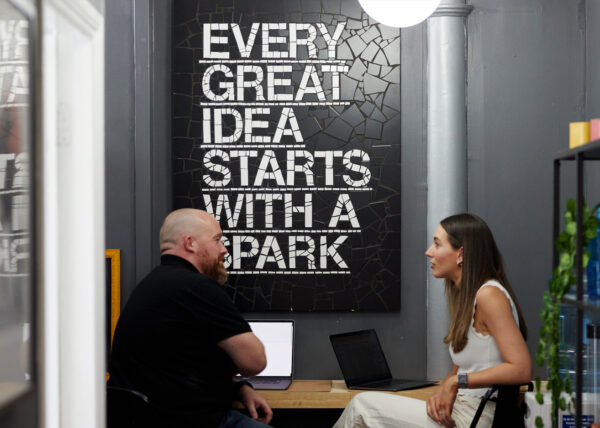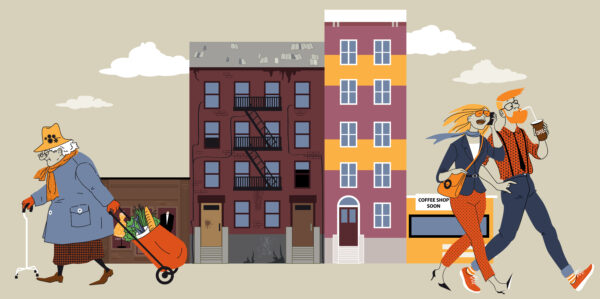
What does gentrification mean for creative spaces in Manchester?

As brand and advertising specialists based in Manchester, we like to keep our finger on the pulse of what’s going on the city, particularly when it comes to the creative industries. We recently went along to an event on the topic of working spaces and we learnt some sobering facts about the state of working spaces in the city.
The big talk at the event was that Rogue Artists Studio will no longer exist in the setting of Crusader Mill. The building has been purchased by property developers Capital&Centric, leaving Rogue to pack up, move out and search for a new home.
This is something that is happening over and over again, leaving everyone from tattoo artists to the smaller creative agencies like us in a bind. In a city renowned for its creative culture, artists are now struggling to maintain a space to work. Looking back, from Oasis to Sarah Burton, Danny Boyle and Stanley Chow, all art forms have benefitted from Manchester-bred talent, but with the city’s creatives are now having to relocate, people are asking: what’s going on?
The first answer is obvious: property prices. In 2015, on average, there were over 6 applicants per letting, and some estimate that city centre property prices will increase by up to 25% in the next 5 years. This leads to property developers who, knowing their maths on the situation pretty well, easily out-buying the likes of not-for-profit collectives such as Rogue.
However, isn’t this just the cycle? First, artists occupy an area; area becomes “cool,” “edgy” and “up-and-coming;” area gets expensive; artists are priced out and the property developers move in? It’s an old story, one that a man called Richard Florida basically predicted in 2002. He coined the theory of the Creative Class and their role in urban regeneration, explaining that for economies to flourish in metropolitan areas of stagnant growth, the Creative Class (artists, writers, musicians, LGBT communities) were the driving force behind change and development.
So, is this Manchester’s fate? Continuously soaring property prices (unmatched by a rise in wages) in areas once inhabited by creative minds that are taken over by wealthy suits? Should we welcome this cycle as part of a city’s natural evolution and be happy it is boosting the economy? Or should we be miffed that everyone who wants to be within walking distance of Deansgate will need access to a six-figure inheritance aged 25?
There are positive signs. With Rogue no longer at Crusader Mill, some are now pointing at M3 as being the new postcode for creatives. Salford is already home to The International 3, Art Work, Islington Mill and Future Artists as well as a whole raft of advertising, marketing and branding agencies, so if Rogue are trying to stay close to the city, a quick look over the water from Spinningfields (where rent is dramatically cheaper) might be the best bet for all.
So what do you think? Had experience of gentrification first hand? Share your story below.